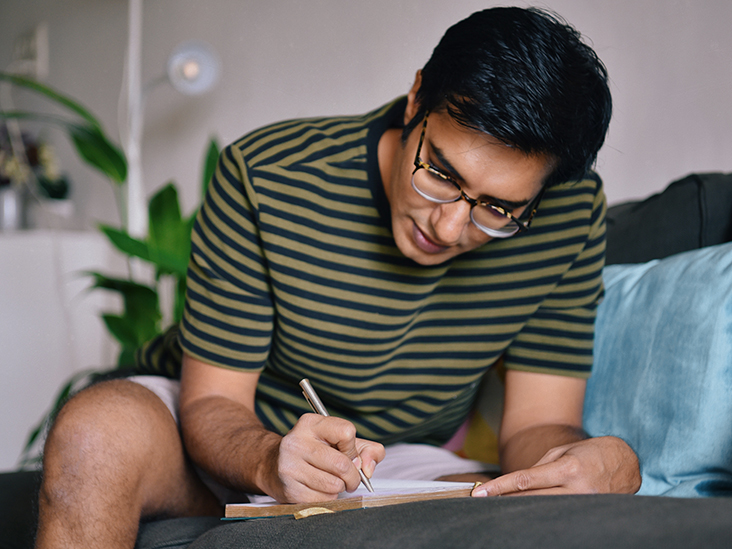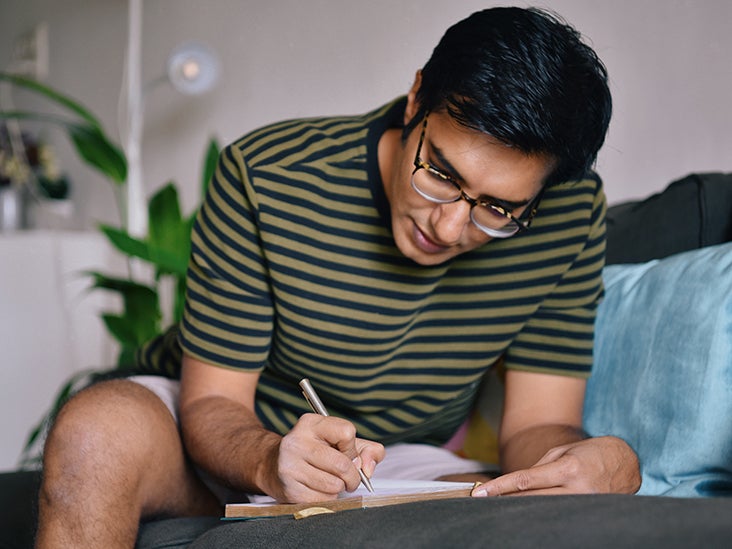

Mental health conditions are prevalent in the bisexual population. This is typically due to the stigmatization, oppression, and discrimination that they and others in LGBTQIA+ communities face. These factors can all contribute to negative mental health outcomes.
Bisexuality is a type of sexual orientation. A person is bisexual when they experience a sexual attraction, romantic attraction, or both to more than one gender.
Bisexual people make up the largest population within LGBTQIA+ communities. However, there is a lack of research regarding mental health issues in bisexual people.
This article explores existing research regarding mental health conditions in bisexual people. It also looks at where these populations may find support.
An older report by the San Francisco Human Rights Commission notes that bisexual people make up the largest single population within LGBTQIA+ communities. According to the American Psychiatric Association (APA), approximately 3.9% of the adult population of the United States are bisexual.
However, there is a lack of significant research surrounding mental health in bisexual people. This is despite research suggesting that bisexual people are at greater risk of mental ill-health than lesbian women and gay men.
In a 2020 study looking at mental health in Australian bisexual people, 72% of the participants reported high or very high levels of psychological distress. Other research also highlights that bisexual people experience higher or equivalent rates of poor outcomes for depression and anxiety relative to gay and lesbian people.
In particular, bisexual women experience
Research also indicates that there is a higher risk of suicide and non-suicidal self-injury in bisexual individuals than in heterosexual, gay, and lesbian people.
The APA notes that bisexual people are more likely to experience depression than heterosexual, gay, and lesbian individuals.
The
One 2015 study suggests that bisexual women are 26% more likely to feel depressed than lesbian women.
A 2018 review looking at various studies also found that depression scores were higher in bisexual individuals than in heterosexual, gay, and lesbian individuals. The review suggests three potential causes of depression:
- Sexual orientation-based discrimination: Bisexual individuals may experience stigma, prejudice, and discrimination that is qualitatively different than it is for lesbian and gay individuals.
- Bisexual invisibility and erasure: These are in relation to the delegitimization of the bisexual identity, such as people perceiving bisexual individuals as either heterosexual, gay, or lesbian rather than bisexual.
- Lack of bisexual-affirmative support: This can include a lack of support from the partners of bisexual individuals as well as a lack of support from within LGBTQIA+ communities and the wider society.
A 2020 study also highlights that healthcare professionals may not be as familiar with the health needs of bisexual individuals, which can result in negative outcomes for this population.
A 2018 systematic review highlights the elevated rate of anxiety among bisexual individuals. This is consistent with a 2020 study that notes higher levels of anxiety symptoms among bisexual people.
According to the
One 2015 study suggests that bisexual women are more likely to experience stress from social settings due to discrimination resulting from heterosexism and monosexism. This may cause bisexual women to experience worse mental health than lesbian women.
Bisexual people are also likely to experience
A 2020 study also notes that bisexual people may be likely to experience sexual identity stress at multiple levels. This includes stress from:
- having identity uncertainty
- having to hide their sexual orientation
- having a weaker sense of connection to LGBTQIA+ communities
Bisexual people may also experience substance misuse. This can be in response to their experiences with discrimination, stress, and violence.
A
This is consistent with other evidence that suggests that bisexual men are more likely to misuse tobacco and alcohol than the general population. Similarly, bisexual women drink more than heterosexual women and have a higher risk of developing alcohol use disorder.
The
Low self-esteem in bisexual people can arise from a number of scenarios. This can be due to rejection from society, family, and friends as well as from religious pressures and social discrimination.
An older report notes that bisexual people experience more stigma in terms of their identity being delegitimized, such as being told that their sexual identity is a “phase.” This can result in bisexual people having lower self-esteem and less certainty regarding their sexual identity.
An
A 2019 study in bisexual men notes that low self-esteem and low self-worth had an effect on substance misuse and mental health. It also suggests that people in this population have an increased chance of contracting HIV.
A variety of factors can influence the development of eating disorders in bisexual people, including low self-esteem, discrimination, poor mental health, and impractical body standards.
Bisexual men may have a higher risk of experiencing body dysmorphia and eating disorders. This is consistent with a 2020 study that also suggests that bisexual men have a
Evidence indicates that bisexual women are twice as likely to have an eating disorder than lesbian women. A 2020 study notes that bisexual individuals are also more likely to experience disordered eating habits, such as purging and binge eating, than heterosexual individuals.
Mental health complications are prevalent among bisexual individuals, but support is available. Some options that people may want to consider include:
- Community: Establishing connections with other bisexual people and other individuals within LGBTQIA+ communities may help people feel safer and welcome.
- Identity: Having involvement and pride in one’s bisexual identity may help prevent delegitimization. For example, people may wish to join advocacy groups.
- Therapy: Finding a therapist who supports and affirms bisexual identities can help improve a person’s well-being.
- Healthcare: Finding a doctor who not only supports bisexual identities but is familiar with complications that bisexual people may face can help provide better health outcomes.
Additionally, there are many organizations that can provide support for bisexual people. These include the following:
Click here to learn more about available mental health resources.
Some evidence suggests that bisexual individuals may face a higher risk of suicide than heterosexual, gay, and lesbian individuals.
Bisexual people can access national hotlines for free, confidential assistance from trained professionals. These hotlines are available 24 hours per day and may benefit anyone experiencing difficulties with their mental health or those who want or need to speak about their feelings.
People who may not feel comfortable talking on the phone or verbally discussing their emotions can instead try online messaging and text-based support options.
If a person believes that someone is at immediate risk of suicide, they should call 911 or a local emergency number. People should attempt to supply as much accurate information as the emergency services require.
Mental health conditions are common in the bisexual community. Many factors — such as stigma, discrimination, and oppression — can contribute to these negative mental health outcomes.
More research is necessary to provide better, personalized care and solutions for bisexual individuals, who may be more susceptible to mental health conditions due to stigma and discrimination.
However, support is available. Bisexual people can find support and advocacy from several organizations. Additionally, finding supportive communities and healthcare professionals that affirm bisexual identities can help improve well-being.